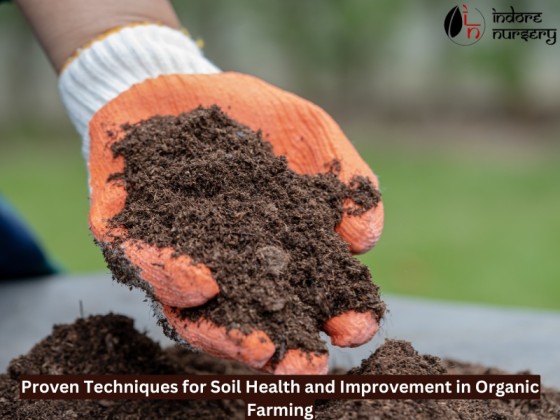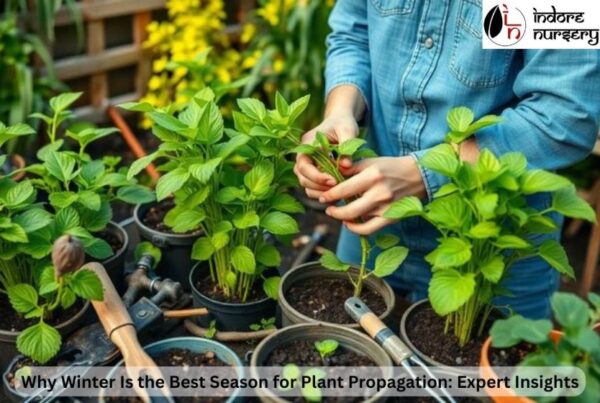Preserving soil health is of most importance to organic farming. Healthy soil nourishes the plants, holds water, and increases crop yields. Organic farming practices generally focus much on soil health since there is an absolute ban on synthetic chemicals. In lieu, farmers have used natural methods for improving the quality of their soils. That is why we discuss here some scientifically established techniques that can promote the health of the soil in organic farming to a considerably high extent.
Composting: Nature’s Way to Improve Soil
Composting is one of the essential organic techniques of farming. Farmers collect and recycle wastes related to plants and food, thus making compost. This compost develops the basic nutrients that the plants require. Besides, this compost increases the structure of the soil and enables its retention of water. Compost consequently increases the organic matter in the soil. Organic matter further promotes beneficial microbes. These positively affect the absorption of nutrients by the plants.
Crop Rotation: Preventing Soil Depletion
Another certain way of keeping soil healthy is crop rotation. Farmers plant different crops in the same field for each season. Such a method prevents the depletion of some nutrients present in the soil. Different plants use other different nutrients in the soil. Through crop rotation, farmers allow the soil to replenish a certain necessary nutrient. Additionally, crop rotation helps minimise pest and disease problems.
For example, legumes are rotated often because they fix nitrogen, thereby restoring it to the soil and giving other crops a benefit. Crop rotation has also enhanced biodiversity in the farming system. Depending on the type of crops planted, they help improve the health of soil and its resilience as well as the probable hostile effects of climate change.
Cover Cropping: Protecting and Enriching the Soil
Cover crops are usually planted outside the main crop production season. Cover crops prevent the soil from erosion by giving the ground cover leaves. Their role also includes enrichment of soil through organic matter incorporation and nutrient addition. These include legumes, grasses, and clover. In the process, they make the soil more loose and prevent it from becoming hard. In addition, microbial activity is enhanced.
Moreover, the cover crop naturally puts out weeds, thereby reducing the need for herbicides. The roots of the cover crop also help in the aeration of the soil. This helps for better infiltration and retention of water hence facilitating healthy growth.
Mulching: Retaining Water and Improving Soil Structure
Mulching is one of the techniques that is effective in enhancing soil health. Organic material in the form of straw, leaves, or grass clippings is applied by the farmer uniformly over the soil. It, therefore, suppresses both transpiration and evaporation, which hinder moisture loss. Mulching naturally suppresses weed growth, so competition for nutrients is reduced. Eventually, the mulch breaks down and provides fresh organic matter to the soil, increases soil fertility, and fosters beneficial microorganisms.
Furthermore, it regulates the soil temperature as well. When it gets hot, it cools the soil. When it gets cold, it warms the soil. This is very important in seasonal plants in Indore, where seasonal plants’ growing seasons can easily be swayed by temperature changes.
Vermicomposting: Enhancing Soil with Worms
Vermicomposting is another practical organic farming practice. Organic waste is decomposed by earthworms for vermicomposting. The nutrient-rich product that the worms produce is known as vermicompost. Vermicompost enhances fertility in soils and promotes wholesome growth and development of plants. The soil becomes more habitable and drier for a longer time.
Vermicompost is applied to the soil by farmers, so the soil’s micro activity level increases. It allows the increase of beneficial microbes and thereby enhances the growth of plants. In addition, vermicompost assists the soil in retaining its moisture content, thus preventing an over-frequent system of watering it; vermicompost helps the soil in improving its health and conserving water at the same time at a minimal cost about the benefits enjoyed.
Organic Fertilisers: Boosting Nutrient Content Naturally
Organic fertilisers are very relevant to the enhancement of soil health. Organic fertilisers originate from organic matter, animal as well as plant products. Organic fertilisers supply nutrient inputs for growth. Among such nutrients are nitrogen, phosphorus, and potassium. Organic fertilisers do not upset the microbial life of the soils nor have similar noxious reactions when added as synthetic fertilisers. Organic fertilisers enhance the structure of soils and increase organic matter.
For example, organically fertilise plants can be applied to beautify plants for home decor in Indore by enhancing growth naturally. Organic fertilisers are marked as having slow release so that nutrients are available over a long time. They also ensure healthy root development besides improving the resilience of the plants.
No-Till Farming: Preserving Soil Structure
No-till farming is a practice whereby the farmer does not cultivate soil. Tilling disturbs the soil structure, thus resulting in erosion problems. By no-till farming, crops are planted straight into undisturbed soils. Additionally, this conserved the soil structure and reduced any risk of possible erosion. Besides, no-till farming enhances the retention of water and the prevention of soil compaction.
This is because the good organisms move on to proliferate and multiply without disturbing the soil. The earthworms and bacteria, among other organisms, contribute to the health of the soil. Furthermore, an indoor-outdoor plants nursery in Indore will likely recommend no-till practices for the home gardener. It’s a less laborious process that fosters healthier plant growth.
Green Manuring: Enriching Soil with Plant Material
Green manuring is the practice of developing crops purely and solely for the enrichment of the farmer’s soil. Such crops are called green manures. Such crops are ploughed into the soil. As they break down, they contribute organic matter and nutrients to it. Enhancing soil fertility is the utmost worth of green manuring.
For example, green manuring before crop planting improves the quality of the soil. Again, green manuring helps improve soil aeration and water retention. Using this method, farmers can improve the quality of the best plant nursery in Indore, crops. Furthermore, it is a chemical-free method to build up healthy soils.
Soil Testing: Understanding and Managing Soil Health
Regular testing of soils is necessary to keep the soil healthy in organic farming. The soil test gives valuable information about what the nutrient levels and pH balancing might be like. With such information, farmers are best positioned to make informed decisions regarding the way they manage their soils. Soil tests also inform the farmer of nutrient deficiencies.
Therefore, through soil testing, the farmlands can give the appropriate amount of organic fertilisers. In this manner, crops nourish them to the optimal growing period. In addition, soil testing prevents over-fertilization, which would positively deteriorate the ecosystem of the soil.
Conclusion
Thus, with organic farming, soil fertility is the base of successful crops. Hence, techniques like composting, crop rotation, and mulching are ever-improving the soil fertility. Further additions with methods like vermicomposting, no-till farming, and cover cropping further improve soil sustainability. Thus, utilisation of organic fertilisers and conducting periodical soil tests ensure long-term soil health.
By taking these established practices, organic farmers enhance soil quality. This brings out healthy plants with better yields and a sustainable farming system. Such methods are natural, cost-free, and more environmentally friendly. Improvement of soil health is what makes organic farming possible, thus keeping the health of the environment in check.










Recent Comments